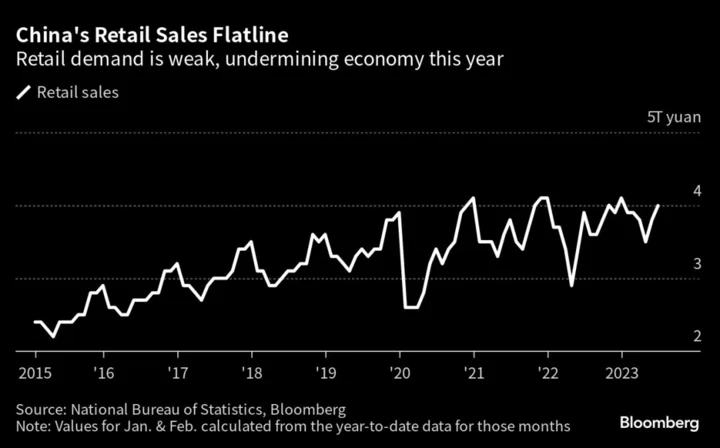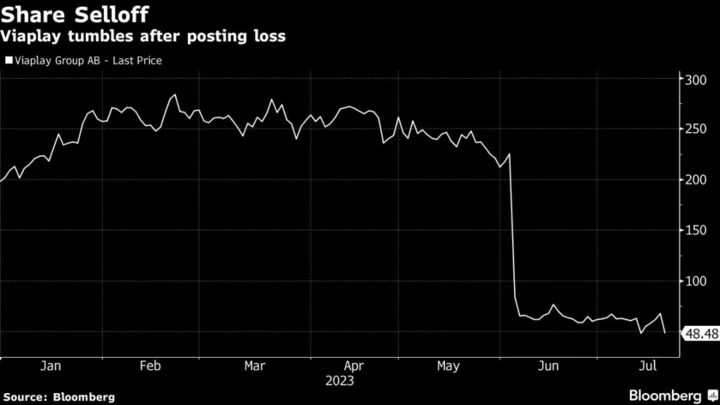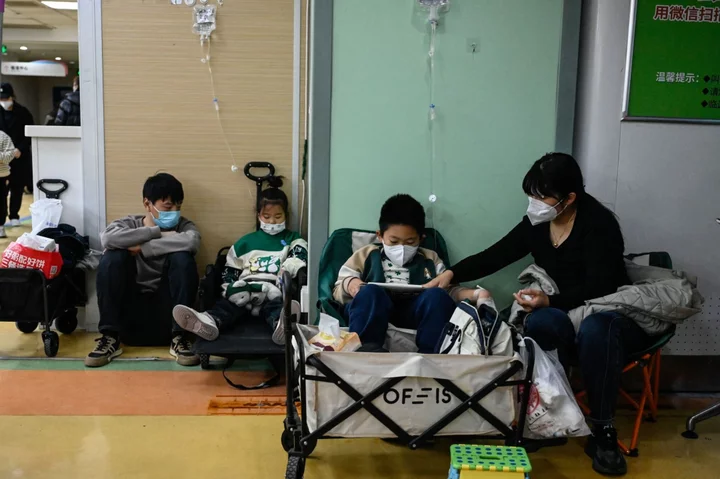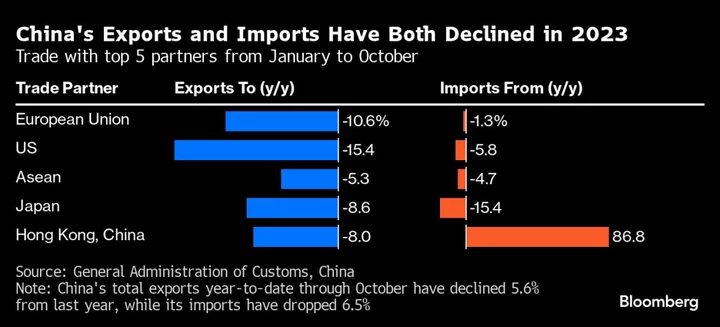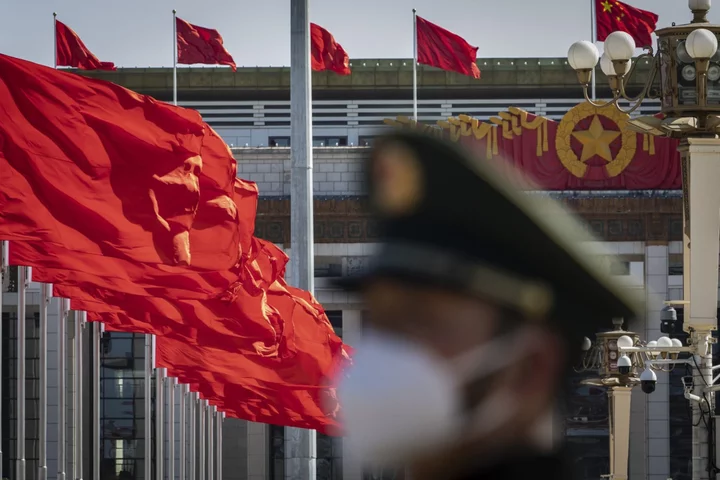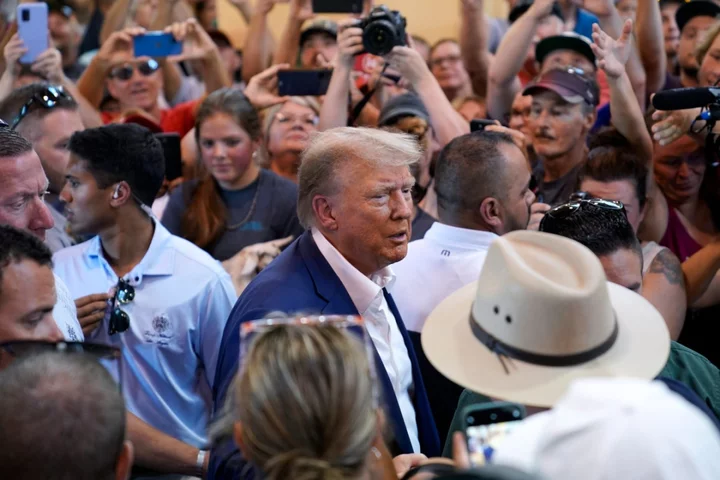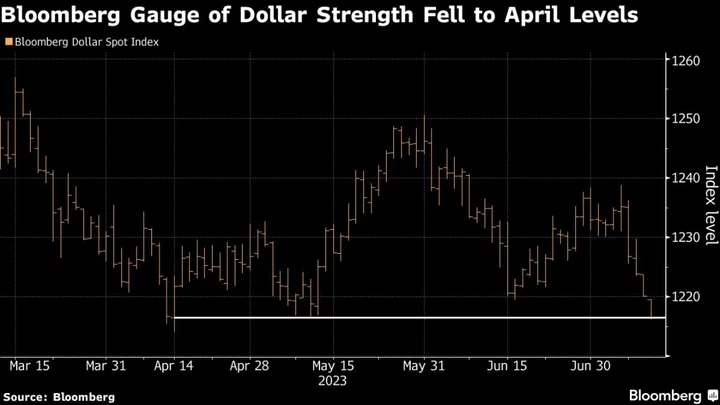China issued more measures to bolster economic growth, including a plan to boost consumer industries and steps to grow an exchange dedicated to helping small firms get access to funds.
The government wants to accelerate growth in the so-called light industry which covers items from home goods, food and paper-making to plastic products, leather and battery, according to a plan published Friday by three agencies including the Ministry of Industry and Information Technology.
Authorities aim to boost growth of the sector’s value added to an average of about 4% through the end of next year, after it slowed to just 0.4% in the first half, the MIIT said in a statement accompanying the release of the plan.
Also on Friday, the China Securities Regulatory Commission unveiled proposals to loosen limits on market makers of the Beijing Stock Exchange, including a 50% cut in the minimum net capital over the last 12 months to 5 billion yuan ($699 million) and an easing of their ratings requirement.
The move is intended to help the marketplace “maintain liquidity at a reasonable level,” the CSRC said in draft rules published Friday. The exchange was launched in late 2021 to broaden financing access for small firms and technology startups.
The measures followed a slew of policies the Chinese government has announced over the past few weeks to revive the economy’s waning post-Covid recovery. Growth momentum weakened in the second quarter as the property market slumped again after a brief rebound at the start of the year. Exports fell and consumer spending slowed, pushing the economy to the brink of deflation and further darkening the growth outlook.
READ: Here’s How China Is Supporting Economy as Stimulus Awaited
At a key meeting earlier this week, China’s top leaders stopped short of promising strong monetary and fiscal stimulus. Instead, they signaled more support for the housing sector and a plan to address mounting local debt risks.
They also vowed to enliven the capital market in what is seen as an attempt to help improve business and household confidence.
The light industry, which contributes to more than a quarter of China’s exports and makes up 16% of national industrial value-added, is “key to stabilizing the traditional industry” given its massive size, importance for consumption, broad industry coverage and long supply chain, the MIIT said in its statement.
As part of efforts to stabilize exports, the government will support companies that are participating in international trade fairs, building overseas R&D centers and distribution networks, and strengthening research into markets related to the Belt and Road Initiative and the Regional Comprehensive Economic Partnership, the MIIT said.
It will also push for the China-Europe railway cargo express to carry more light industry goods, it added.
Officials in the domestic market will support sales of green and smart home goods in rural areas, and expand the use of battery products in electric cars, power storage and telecommunications, it said.
They will also guide the food industry to integrate with healthcare, tourism, entertainment and science promotion, it said. Funding support will be provided to make breakthroughs in sectors such as smart manufacturing, it said.
Separately, the State Tax Administration said new tax breaks worth 927.9 billion yuan were offered in the first half of the year, with 76% granted to private firms. Tax exemptions on new energy car purchases totaled 49.17 billion yuan in the period, up 44.1% on year, its officials said at a briefing Friday.

